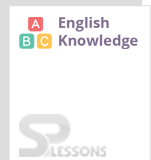 Introduction
Introduction
A conjunction is a word or a group of words that joins words, phrases, sentences or clauses etc. Examples: and, but, or, nor, for, yet, so, although, because, since, unless, when, while, where are some of the commonly used conjunctions. Conjunctions Practice Quiz 1 presents some examples of conjunctions in the Q&A format.
For Example –
I bought some mangoes and oranges.
Give me a pen or a pencil.
The above mentioned bold words are joining words and are called conjunctions. In the first sentence, the conjunction ‘and’ joins two nouns (‘mangoes’ and ‘oranges’). In the second sentence, the conjunction ‘or’ connects two noun phrases.
Conjunctions – There are three kinds of conjunctions
1. Coordinating Conjunctions
2. Subordinate Conjunctions
3. Correlative Conjunctions
 Quiz
Quiz
Directions (1Q - 5Q): Read each sentence to find out whether there is any grammatical error or idiomatic error in it. The error, if any, will be in one part of the sentence. The number of that part is the answer. If there is ‘No error’, the answer is (D). (Ignore errors of punctuation, if any).
Q1. Although they listen to me (A)/ but their actions (B) / prove otherwise (C) / No error (D)
- A. A
B. B
C. C
D. D
E. E
- A. A
B. B
C. C
D. D
E. E
- A. A
B. B
C. C
D. D
E. E
- A. A
B. B
C. C
D. D
E. E
- A. A
B. B
C. C
D. D
E. E
Directions (1Q - 5Q): Read each sentence to find out whether there is any grammatical error or idiomatic error in it. The error, if any, will be in one part of the sentence. The number of that part is the answer. If there is ‘No error’, the answer is (D). (Ignore errors of punctuation, if any).
Q1. He has no chance (A) / than to start (B) / his own business (C) / No error (D)
- A. A
B. B
C. C
D. D
E. E
- A. A
B. B
C. C
D. D
E. E
- A. A
B. B
C. C
D. D
E. E
- A. A
B. B
C. C
D. D
E. E
- A. A
B. B
C. C
D. D
E. E
Directions (1Q - 5Q): Read each sentence to find out whether there is any grammatical error or idiomatic error in it. The error, if any, will be in one part of the sentence. The number of that part is the answer. If there is ‘No error’, the answer is (E). (Ignore errors of punctuation, if any).
Q1. Hardly (A) / we had reached (B) / the platform (C) / when the train started. (D) / No Error (E)
- A. A
B. B
C. C
D. D
E. E
- A. A
B. B
C. C
D. D
E. E
- A. A
B. B
C. C
D. D
E. E
- A. A
B. B
C. C
D. D
E. E
- A. A
B. B
C. C
D. D
E. E
Other Articles
 Study Guide
Study Guide
 Exams
Exams
| Competitive Exams - College Entrance Exams | ||||
|---|---|---|---|---|
| Category | Notification | |||
| Diploma | NITC New Delhi | Goa Diploma Admissions 2019 | ||
| PG | GATE | |||
| Click Here For – All India Entrance Exam Notifications | ||||
 Daily CA
Daily CA
 Job-Alerts
Job-Alerts
 SP Quiz
SP Quiz
| Competitive Exams - Practice Sets | |
|---|---|
| Category | Quiz |
| Reasoning | Puzzles |
| English Language | Spotting Errors |
| Quantitative Aptitude | Profit & Loss |
 GK
GK
| General Knowledge for Competitive Examinations | |
|---|---|
| Topic | Name of the Article |
| GK - World | Miss Earth Titleholders |
| International Organizations Headquarters – IGO & INGO | |
| National International Significant Dates | |
| GK - India | YONO SBI 20 Under Twenty Awards |
| Union Budget 2019 Highlights | |
| Indian History Timeline – Quick Read | |
| GK - Abbreviations | Finance Abbreviations |
| International Organizations Abbreviations | |
| GK - Banking & Insurance | Indian Banking History Highlights |
| The Budget Effect On Income Tax | |
| GK - Science & Technology | Physical Quantities and Units |
| Measuring Devices | |
| Indian Space Centers | |





